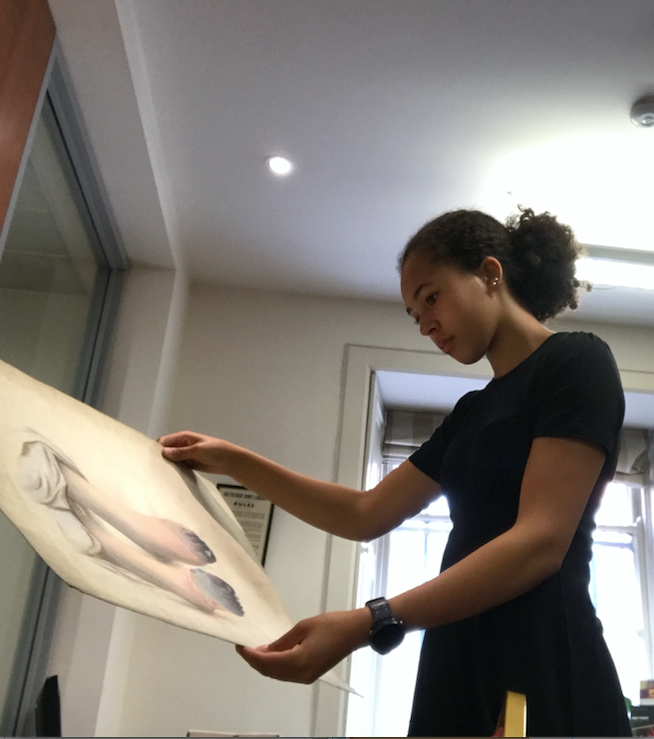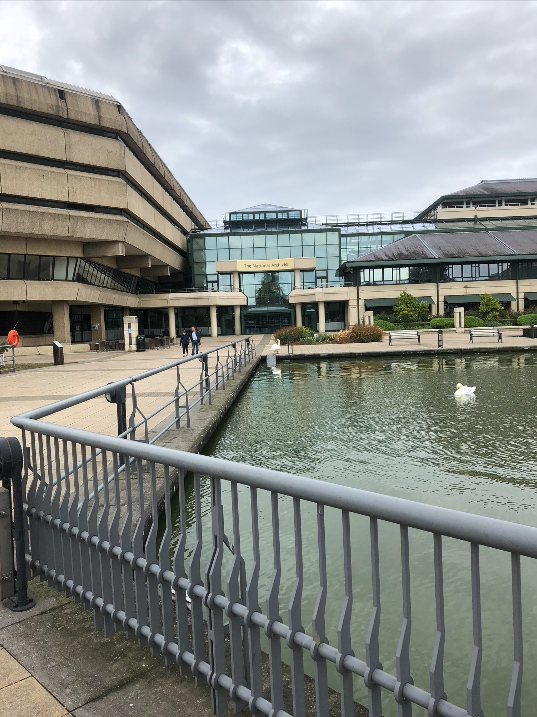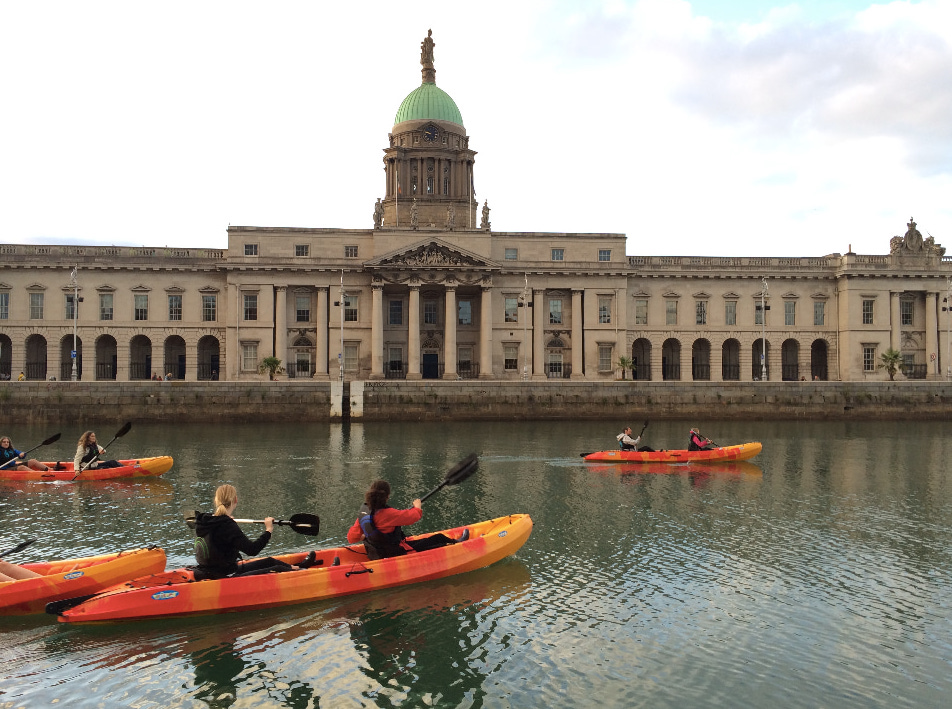Leah Warren researches the history of medicine in Dublin and London during the Great Potato Famine
Thanks to the generous support of WSU's Undergraduate Research Opportunity Program and the Sterne-Lion Scholarship, history major Leah Warren traveled to Dublin, Ireland, and London, England.
Her project focused on the social history of medicine surrounding the Great Potato Famine of the 1840s, which resulted in the deaths of more than one million Irish. In order to investigate her research topic, Leah visited five archives while on her 16-day trip: the National Archives of Ireland, the Royal College of Physicians in Ireland, the National Library of Ireland, the British Library and the National Archives in Kew.
Throughout all of these locations, Leah viewed medical textbooks, illustrations, journals, and lecture scripts from medical schools in the 19th century as well as government documents pertaining to famine relief and fever hospitals.

What Leah discovered
Due to the fact that the germ theory of disease was not discovered until years after the famine, Leah was surprised to discover that mid-19th century physicians knew that there was a strong link between sanitation and health. This association was key to understand how fever outbreaks were treated. In addition, while fever epidemics were frequent in the pre-famine era, it was clear that doctors were drastically underprepared for the multitude of epidemic diseases that arose during the Great Famine, not solely because of the lack of medical knowledge, but also because of the lack of resources allocated by the Poor Law Commission and the Famine Relief Commission.

Leah's tips for future student researchers
"Make sure to visit cultural attractions when you can! After a long day in the archives, it was a nice break to take a kayak ride down the River Liffey, stroll through the Kew Botanical Gardens, see a play, run a race, see the changing of the guards ceremony or visit the Dublin Zoo.
Also, make sure you talk to the locals. I learned so much about the Irish opinion of the famine by talking to people in cafes and at local museums. From a research standpoint, try to stay at universities in the area as they are generally inexpensive and centrally located. When preparing for the archives, look through the online catalogs well in advance and ask the archivists for help finding materials if you need it. Have fun and be safe!"
